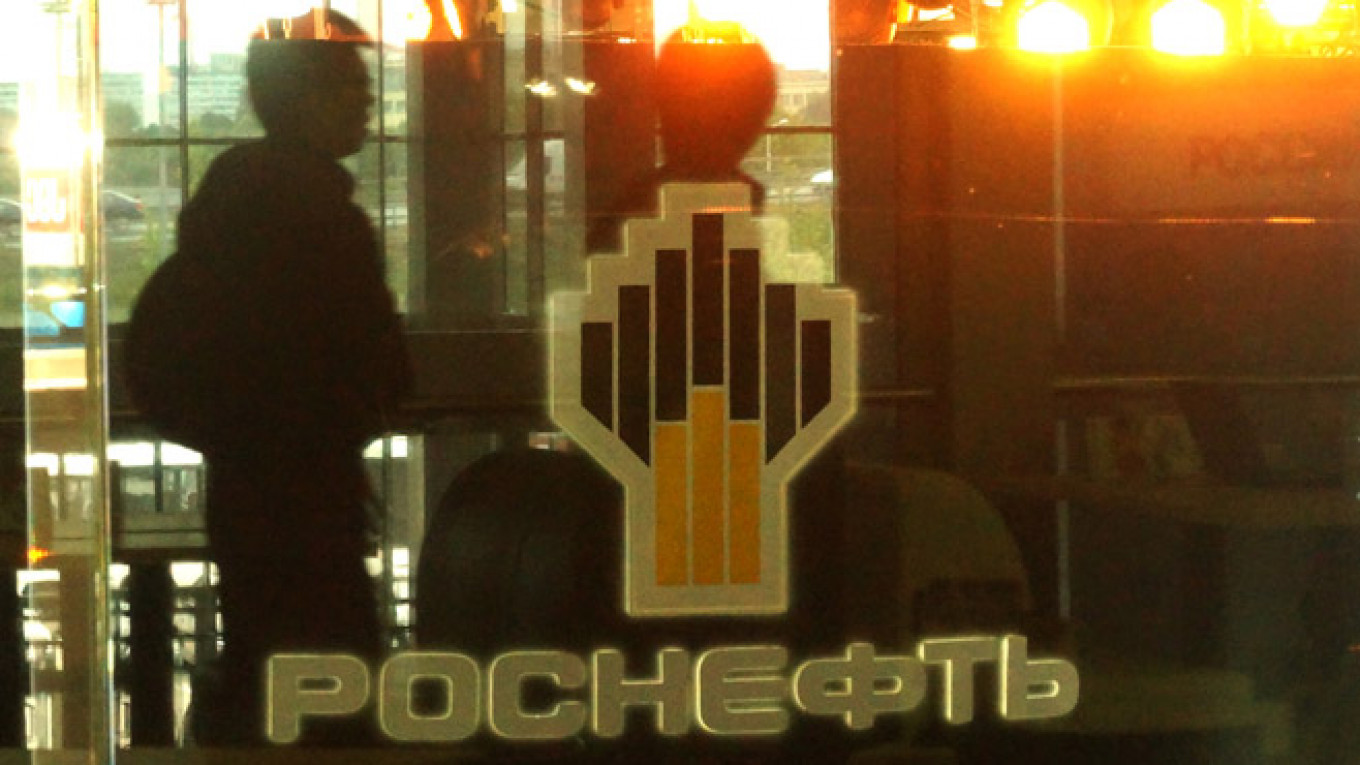The U.S sanctions against state-owned oil giant Rosneft may impact the planned privatization of a 19.5 percent share in the company, Economic Development Minister Alexei Ulyukayev said Saturday.
"The U.S. sanctions imposed on Rosneft, without a doubt, may affect the process of its privatization," Ulyukayev told journalists, Prime news agency reported.
With its latest wave of sanctions on Wednesday, the U.S. targeted both Rosneft and Novatek, Russia's largest independent gas producer. The companies were blocked from buying dollar debt with a maturity period of less than 90 days but otherwise are free to continue operations on U.S. markets and with U.S. companies.
The state has been planning to reduce its 69.5 percent stake in Rosneft to 50 percent plus one share in 2015, ITAR-Tass reported. Ulyukayev said previously that the sale could even take place this year if market conditions were right.
"Our direct instructions are to privatize under the condition that the price is no worse than the price of the initial public offering," Ulyukayev said Saturday, RIA Novosti reported.
The company raised a whopping $10.7 billion with its IPO in 2006, selling off 1.4 billion shares at a price of $7.55 per share.
On Friday, Rosneft's shares closed at 231.75 rubles ($7) on the Moscow Stock Exchange, a drop of 9.4 percent from the previous week. Its share price was hit first by the announcement of sanctions and then by the downing of Malaysia Airlines flight MH17 in eastern Ukraine on Thursday, which brought Russian shares down a total of 1.3 percent on Friday.
Finance Minister Anton Siluanov said previously that the privatization of Rosneft was expected to bring 423 billion rubles ($12.1 billion) to the state budget.
See also:
Rosneft Warns Sanctions Will Damage International Shareholders
A Message from The Moscow Times:
Dear readers,
We are facing unprecedented challenges. Russia's Prosecutor General's Office has designated The Moscow Times as an "undesirable" organization, criminalizing our work and putting our staff at risk of prosecution. This follows our earlier unjust labeling as a "foreign agent."
These actions are direct attempts to silence independent journalism in Russia. The authorities claim our work "discredits the decisions of the Russian leadership." We see things differently: we strive to provide accurate, unbiased reporting on Russia.
We, the journalists of The Moscow Times, refuse to be silenced. But to continue our work, we need your help.
Your support, no matter how small, makes a world of difference. If you can, please support us monthly starting from just $2. It's quick to set up, and every contribution makes a significant impact.
By supporting The Moscow Times, you're defending open, independent journalism in the face of repression. Thank you for standing with us.
Remind me later.






